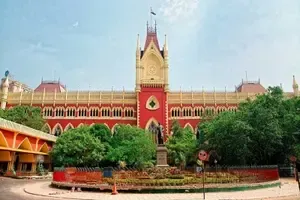Can the Court Endorse Deceptive Practices? Calcutta HC Temporarily Halts Stipend for Non-Teaching Staff in Bengal

Synopsis
Key Takeaways
- The Calcutta High Court ruled against a stipend scheme for non-teaching staff, citing fraud.
- Justice Sinha stressed the importance of following the Supreme Court's orders.
- The scheme was deemed a misuse of public funds.
- Public trust in the judicial system is paramount.
- The ruling calls for transparency in government actions.
Kolkata, June 20 (NationPress) The Calcutta High Court has ruled that the West Bengal government's initiative to provide stipends to non-teaching staff, who lost their jobs due to a Supreme Court ruling in April, constitutes "fraudulent activity, cheating, and corruption". As a result, the court has put a temporary halt on this scheme.
A single-judge bench led by Justice Amrita Sinha expressed these concerns while imposing an interim stay on the payments associated with the "West Bengal Livelihood and Special Security Interim Scheme" aimed at non-teaching personnel.
Upon reviewing the order, which was released later in the day, it became evident that the bench argued against the stipend payments as they conflicted with the Supreme Court's directive from April, which not only terminated the jobs but also mandated the return of salaries disbursed to those who secured employment through fraudulent means.
According to the order, "Continuing to issue payments to these compromised candidates instead of seeking reimbursement of their previously received salaries necessitates judicial intervention," as stated in the document, a copy of which was obtained by IANS.
Justice Sinha emphasized that the West Bengal government has a responsibility to comply with the Supreme Court's ruling from April.
She stated, "The law established by the highest court is obligatory for all, and everyone must adhere to it, regardless of its unpopularity. The public's trust in the judicial system must not be undermined. The actions of the state in creating this contested scheme appear to overstep the High Court's order as confirmed by the Supreme Court."
The order further questioned the justification behind the state government’s decision to allocate public funds to individuals who would not provide any services in exchange for the stipends.
Justice Sinha noted, "This scheme does not ensure work nor offers public assistance to unemployed individuals. Instead, it seems to financially support those whose employment was terminated due to illegal actions."
She remarked that the state ought to compensate individuals for services rendered to it, and emphasized that providing payments to individuals who are either inactive or employed elsewhere is unacceptable.
The judge concluded, "Allowing the state to proceed with this scheme would implicitly endorse fraudulent practices, deception, and corruption."






